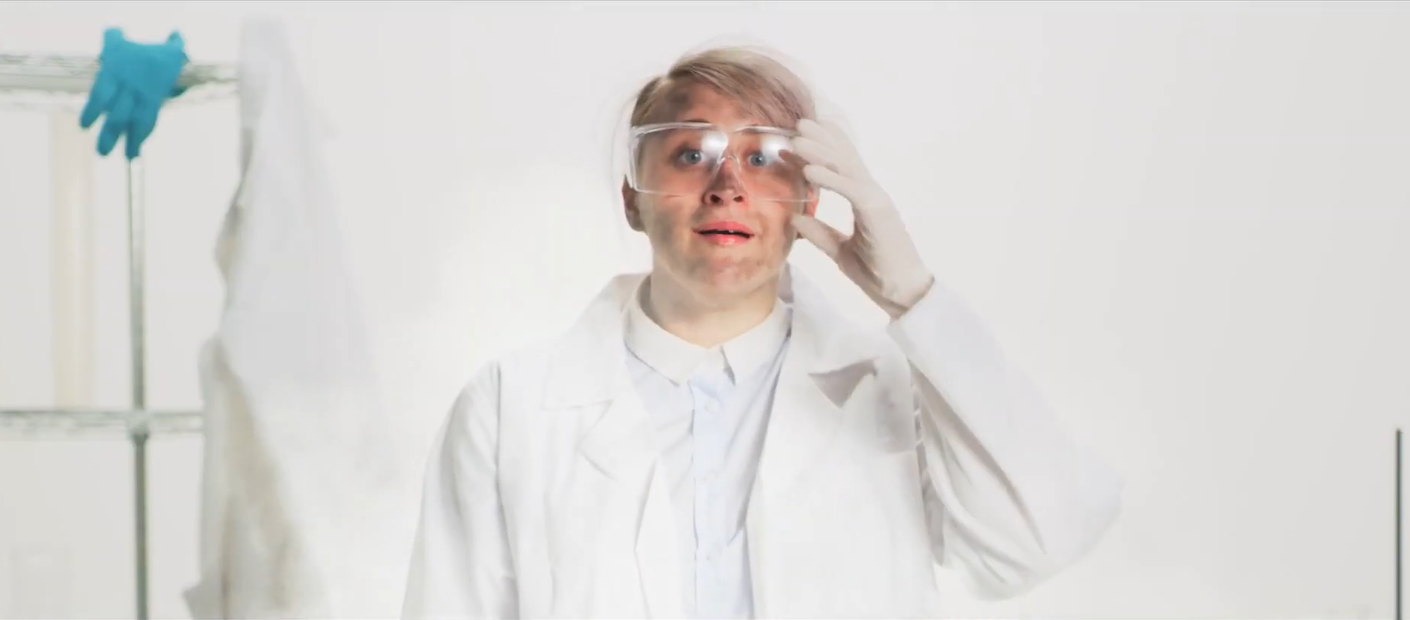
The Evolution of Science That Made Way For Lume
by Sarah Thomas
“Discontent is the first necessity of progress.”-Thomas Edison
There is a tiny, invisible world living on, in, and all around us. Understanding the invisible world of bacteria is what led Dr. Shannon Klingman to develop the first deodorant innovation in more than one hundred years.
Science is always evolving as we make new discoveries and we build on the knowledge of the observations of the past. What seems like common sense and is widely accepted as truth to us today was more of a mystery to even the most advanced thinkers not so long ago.
Until relatively recently, scientists didn’t have any knowledge of the invisible world of microorganisms. Scientific understanding was based on observations of the time, and there were some important pieces of the puzzle that were missing.
Spontaneous Generation: Accepted Science for Two Millennia
Since the days of Aristotle (384 - 322 BCE), scientists believed in spontaneous generation–the idea that some living things were created out of dust, dirt, air, or even rotten meat.
A couple of examples of spontaneous generation you may have learned about in school are Jean Baptiste van Helmont’s “recipes” for creating mice and scorpions:
How To Turn Wheat Into Mice
“If a soiled shirt is placed in the opening of a vessel containing grains of wheat, the reaction of the leaven in the shirt with fumes from the wheat will, after approximately 21 days, transform the wheat into mice.”
How To Turn Basil Into Scorpions
“Carve an indentation in a brick, fill it with crushed basil, and cover the brick with another, so that the indentation is completely sealed. Expose the two bricks to sunlight, and you will find that within a few days, fumes from the basil, acting as a leavening agent, will have transformed the vegetable matter into veritable scorpions.”
Now, even the least scientific of us understand that mice make mice. Scorpions make scorpions. The idea of spontaneous generation just sounds silly. And for that, we can thank Louis Pasteur.
Germ Theory of Disease, The End of Spontaneous Generation
Spontaneous generation was finally put to rest when Louis Pasteur–“the father of microbiology”–came to an understanding that, although invisible, bacteria exist everywhere in our world.
He was able to demonstrate that microorganisms only develop in contaminated circumstances– meaning they come from other like microorganisms, and the modern germ theory of disease was born.
As a result, people slowly came to understand how germs and infectious diseases are spread.
Pasteur's understanding made way for the discovery and use of penicillin to fight back against bacterial infections, vaccines for preventing disease, and the importance of cleanliness in a medical setting.
Countless lives have been saved as a result, and (whether we are aware of it or not) we enjoy the peace that comes from living in an age in which most of us don’t worry about dying from a simple scratch or cut.
And science continues to build on itself.
The Science of Lume
Understanding bacteria and how they thrive, reproduce and have different roles paved the way for Dr. Shannon Klingman to develop Lume Whole Body Deodorant.
As an OB/GYN, Dr. Klingman observed a common practice that caught her attention. Women would make an appointment to see their doctor with concerns about feminine odor. Doctors would detect a fishy odor and assume the odor was an indication of a bacterial infection and send their patients home with a prescription for an antibiotic.
Bacterial vaginosis (BV) is misdiagnosed 61% of the time, partly due to the fact that the criteria for making the infection’s diagnosis is based on the doctor's opinion. A lot of times, if a doctor detects a fishy odor during an exam, BV is assumed right away. Women would often leave their appointments feeling insecure and embarrassed.
Dr. Klingman was discontent with misdiagnosis and with seeing women day after day whose confidence had been eroded by what appeared to be normal body odor.
So she used that discontent to make progress.
Dr. Klingman conducted testing in an outside lab and discovered that the odor molecule that forms with bacterial vaginosis (trimethylamine) inside a woman’s vagina is the exact same odor molecule that forms with external intimate body odor. She then went on to prove that Lume blocked all external odor reactions on our body no matter where they occurred!
You need an external solution to solve external body odor. An oral antibiotic can’t do that.
External body odor is created when a certain kind of bacteria living on our skin consumes our bodily fluids and produces odor as a byproduct. And by byproduct, I mean waste. Pass gas.
Bacteria + Sweat = Odor.
If gassy bacteria is the culprit in causing body odor, then the best and most logical solution to control odor is to restrict this bacteria’s diet. Stop feeding that beast!
Lume Starves Out Odor-Causing Bacteria
Dr. Klingman came up with a patented formula that does just that. Lume Deodorant and Lume Deodorant Wipes block odor reactions on our skin, so odor never has a chance to form in the first place.
While Lume was first developed for use by women to control intimate odors, the science is the same for ALL body odor. Whether we’re female, male, nonbinary, trans, old, or young, we’ve all got it! And wherever you sweat, you have the potential for odor. The reaction is the same north and south of the belt. It’s just science.
Lume is truly the first deodorant innovation in odor control since the idea of using aluminum to control sweat came on the scene more than one hundred years ago. It’s about time!
Thank A Scientist If You Know Anything About The Invisible World Of Bacteria
Bacteria may be tiny and invisible, but they outnumber humans by a long shot. While the numbers can vary widely from person to person, or even throughout the day, each of us is likely to be hosting more bacterial cells than our own human cells. And we come into contact with countless more on a daily basis.
Can we co-exist? The answer is yes. We were designed to co-exist. Science is coming to a better understanding of our microbiome–the world that lives within and on our bodies–and the role bacteria plays in digesting our food, regulating the immune system, and protecting against disease. So we are learning that not all bacteria is bad. And science continues to build on itself.
We have all reaped the benefits of living in a world that has been changed and advanced by people who were passionate enough to be discontented. Hug a rebel scientist today!
Lume addresses body odor in a way that challenges how it’s been handled by products since the beginning and also expands our awareness of its cause. We are proud to play such a key role in this history.
Check out the Lume shop for doctor developed products like Lume Deodorant For Pits, Privates & Beyond, Lume Deodorant Wipes, and Lume Triple Milled Soap that can revolutionize your hygiene routine.
Categories
Recent Articles
- Your New Indulgence: Introducing Vanilla Bliss
April 04, 2025
- Feminine Hygiene Myths: A Tale As Old As Time
March 24, 2025
- Do Showers Control Body Odor?
March 18, 2025
- The Skin Loving Benefits of Mandelic Acid
February 28, 2025
- Why Is Acid In My Deodorant?
February 28, 2025
- What Are AHAs?
February 28, 2025
- 3 Helpful Tips For Getting Started
February 28, 2025
- Unlocking Smoother Looking Skin: Lume's Guide to Managing KP
January 29, 2025
- Drier Days Are In Your Pits’ Future!
January 15, 2025
- This Spray Slays
January 10, 2025
















